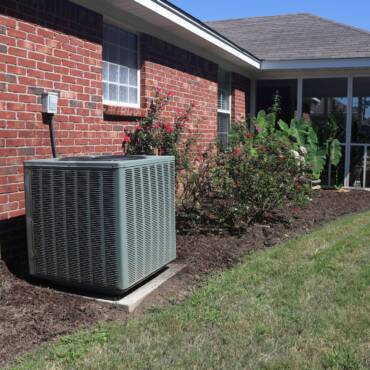Increased safety precautions for AC electrical outlets (NEC changes to GFCI in 2020)
August 16, 2021
In 2020, following several nationwide electrocution incidents, panel members that govern the National Electrical Code (“NEC”) decided to make some critical safety code changes. These changes affect cooling systems because the compressor equipment often installed in ductless or ducted HVAC systems now requires new electrical outlet power conversions.
While the NEC changes are intended to prevent harmful accidents, the new code requirements are presenting some unfortunate challenges. Most notably, HVAC systems with updated outlet conversions are frequently tripping the circuit breaker, causing issues with operation and functionality.
It’s a complex and technical subject— we know. So to help you better understand the new code requirements, we’ll explain:
- What the new NEC changes are (GFCI requirements)
- How the changes may affect your home
- How the Cooper Green Team can help
Want peace of mind that your HVAC system is running as safely and efficiently as possible? Schedule a check-up today. Our team of licensed HVAC technicians will perform a thorough safety and performance inspection of your home’s heating and cooling systems.
What are the new NEC changes? (GFCI requirements)
Per section 210.8 of The National Electrical Code (NEC), there must now be a “ground-fault circuit-interrupter” (GFCI) installed between a home’s electrical system and its AC condenser unit.
As the name suggests, GFCI’s are devices that will “interrupt” the flow of power if there is something wrong with the current. Essentially, if you’re using an electrical device that’s plugged into an outlet, the GFCI will protect you from getting electrocuted.
Prior to the new code addition, GFCI’s have been a required safety precaution for standard electrical outlets within 6 feet of a water source and that employ 120-volts of power. And while they’ve been commonly required in interior spaces only (bathrooms, kitchens and such), per the updated code they will now be required on exterior connections as well. Most notably, AC condenser units that are typically situated outside the home.
How do these changes affect your home?
The new legislation is only applicable to AC installations within the following Colorado cities: Denver, Westminster, Lakewood, Arvada, Wheat Ridge, Aurora, Boulder, Loveland, Fort Collins, Larimer County, Fredrick, Brighton, Littleton, Morrison, Golden, and Arvada.
Although the safety enhancements intend to protect against dangerous electrocution, many HVAC technicians have started noticing that the new power conversion can cause tripped breakers, which is a frustrating occurrence for homeowners who need their cooling systems to function properly. All the more so in extreme climates, where being without AC can be potentially life-threatening.
Given these new complications, there has been much discussion within the HVAC industry regarding the new GFCI requirement, and how to help homeowners avoid tripped breakers. In the midst of record-breaking summer heat, the state of Texas held an emergency hearing on the new code changes, and decided to delay the implementation until 2023. A few other states have taken similar action, however the majority of the US is still required to be compliant with the new 210.8 code requirement.
UPDATE: As of June 29th, 2021, the State Electrical Board moved to grant a Temporary Variance to Article 210.8 (F) of the National Electrical Code. This temporary variance will only include ductless mini-split units and high-efficiency units that “use a variable frequency drive to control the operation of the outdoor unit.”
Ultimately it is the discretion of each local jurisdiction and municipality to enforce the electrical code and or changes to the code. As a licensed electrical contractor, we are working with the local Colorado jurisdictions to follow the code requirements within their city or county.
How the Cooper Green Team can help
Despite the new challenges of GFCI requirements, recent incidents of electrocution highlight how important it is that your home’s AC system is handled by a licensed HVAC professional. Furthermore, annual maintenance of your heating and cooling systems will allow a qualified technician to catch potentially dangerous wiring problems before disaster strikes.
At Cooper Green Heating and Cooling, we train our technicians to the highest of standards and have decades of experience in repairing, maintaining, and installing HVAC systems. We stay up-to-date on all of the latest code requirements, pull permits on every job, and then work with city and county inspectors to make sure that your home’s electrical systems are operating safely.
As the NEC continues to adopt new standards of safety, we will continue to keep you informed, and remain committed to providing Colorado homeowners with top-of-the-line HVAC services they can depend on.
Need help from an experienced Colorado HVAC technician?
Whether you’re looking for an AC tune-up, repair, or honest second opinion on how to keep your HVAC system operating safely and efficiently, the Cooper Green Team has you covered. Our licensed and highly trained technicians have the knowledge, experience, and equipment necessary to get any job done right—the first time.
Luke Cooper
Luke Cooper is the General Manager of the Cooper Green team and son of Gary Cooper, owner and CEO of Cooper HVAC. After years in the field, Luke took his talents to management and has helped thousands of Colorado homeowners during hot summers and frigid winters. His decade of experience in the field and guiding the company makes him one of the most knowledgeable individuals in Colorado on HVAC, plumbing, electrical and other home services.

Energy Efficiency
Whether you require installation, repair, or maintenance, our technicians will assist you with top-quality service at any time of the day or night. Take comfort in knowing your indoor air quality is the best it can be with MOE heating & cooling services Ontario's solution for heating, air conditioning, and ventilation that’s cooler than the rest.
Contact us to schedule a visit. Our qualified team of technicians, are always ready to help you and guide you for heating and cooling issues. Weather you want to replace an old furnace or install a brand new air conditioner, we are here to help you. Our main office is at Kitchener but we can service most of Ontario's cities
Source link




Add Comment